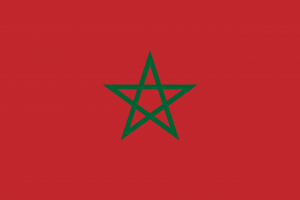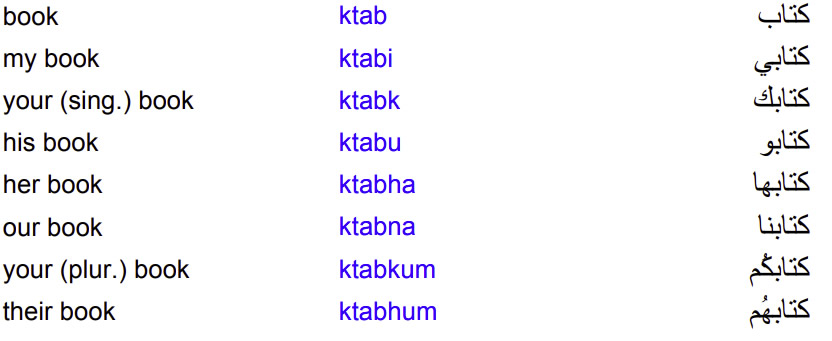Difference between revisions of "Language/Moroccan-arabic/Grammar/Possessive-Pronouns"
< Language | Moroccan-arabic | Grammar
Jump to navigation
Jump to search
m (Quick edit) |
|||
| Line 17: | Line 17: | ||
==Sources== | ==Sources== | ||
https://fsi-languages.yojik.eu/languages/PeaceCorps/Arabic-Moroccan/MO_Arabic_Language_Lessons.pdf | https://fsi-languages.yojik.eu/languages/PeaceCorps/Arabic-Moroccan/MO_Arabic_Language_Lessons.pdf | ||
==Related Lessons== | |||
* [[Language/Moroccan-arabic/Grammar/The-verb-"To-learn"|The verb "To learn"]] | |||
* [[Language/Moroccan-arabic/Grammar/How-to-use-“to-be”-with-names-and-places|How to use “to be” with names and places]] | |||
* [[Language/Moroccan-arabic/Grammar/The-verb-"to-sleep"|The verb "to sleep"]] | |||
* [[Language/Moroccan-arabic/Grammar/Alphabet-and-Pronunciation-in-Moroccan-Arabic|Alphabet and Pronunciation in Moroccan Arabic]] | |||
* [[Language/Moroccan-arabic/Grammar/The-verb-"to-Get-up"|The verb "to Get up"]] | |||
* [[Language/Moroccan-arabic/Grammar/Plurals|Plurals]] | |||
* [[Language/Moroccan-arabic/Grammar/Questions|Questions]] | |||
* [[Language/Moroccan-arabic/Grammar/The-Nominative-Case-in-Moroccan-Arabic|The Nominative Case in Moroccan Arabic]] | |||
* [[Language/Moroccan-arabic/Grammar/How-to-use-“there-to-be”-in-Moroccan-Arabic|How to use “there to be” in Moroccan Arabic]] | |||
Revision as of 13:34, 26 February 2023
Possessive Pronouns in Moroccan Arabic
In Darija, a suffix (ending) may be added to the end of words in order to express possession.
Possessive Pronouns
* For the “my” and “his” forms, the first ending is used for words ending in consonants, while the second is used with words ending in vowels. For example, smiti (my name), but xuya (my brother).
Example of possessive pronouns with the noun “book.”
Sources
https://fsi-languages.yojik.eu/languages/PeaceCorps/Arabic-Moroccan/MO_Arabic_Language_Lessons.pdf


